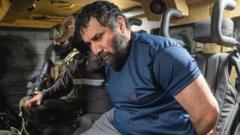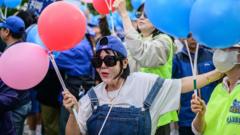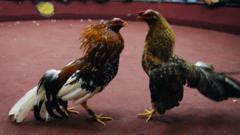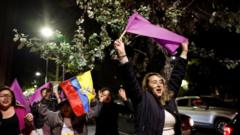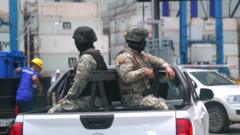With a crucial runoff election imminent on Sunday, the city of Machala reflects the broader struggles faced by Ecuador, where voters are sharply divided between the incumbent President Daniel Noboa and his rival, Luisa González. Residents express deep concerns about rampant drug violence and escalating unemployment, issues that form the backdrop of this pivotal political contest.
Deadlock in Machala: Ecuadoreans Weigh Their Election Choices Amid Crisis

Deadlock in Machala: Ecuadoreans Weigh Their Election Choices Amid Crisis
As the election approaches, Machala's population wrestles with significant issues of crime and unemployment, leading to uncertainty in their leadership decision.
The atmosphere in Machala is charged; the streets are adorned with campaign posters highlighting the contrasting visions of the two candidates. Noboa, a wealthy businessman thrust into the presidential limelight following the prior administration's downfall, is campaigning aggressively as the candidate capable of tackling the nation’s security crisis and improving international relations. Meanwhile, González draws support due to her association with former President Rafael Correa, who remains a polarizing yet influential figure within Ecuadorean politics, eight years post-tenure.
Amidst shuttered businesses and a palpable fear that leads residents to stay indoors after dark, the election’s outcome remains uncertain. The candidates' differing views resonate differently with voters, leaving Machala in a deadlock as they search for a leader who can restore stability and growth to their beleaguered city.
Amidst shuttered businesses and a palpable fear that leads residents to stay indoors after dark, the election’s outcome remains uncertain. The candidates' differing views resonate differently with voters, leaving Machala in a deadlock as they search for a leader who can restore stability and growth to their beleaguered city.

